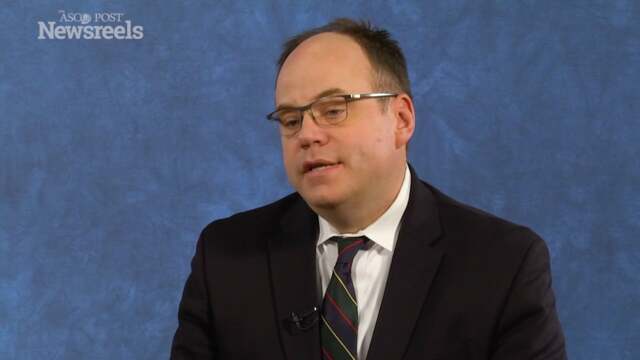Anne Hudson Blaes, MD, on Aromatase Inhibitors and Cardiovascular Disease
2016 San Antonio Breast Cancer Symposium
Anne Hudson Blaes, MD, of the University of Minnesota, discusses the association between aromatase inhibitors, endothelial function, and early heart disease (Abstract S5-07).
Jame Abraham, MD, of the Cleveland Clinic, discusses findings of the Scalp Cooling Alopecia Prevention trial for patients with early-stage breast cancer (Abstract S5-02).
Eric P. Winer, MD, of the Dana-Farber Cancer Institute, summarizes his McGuire lecture on the past and future of breast cancer treatment.
Matthew P. Goetz, MD, of the Mayo Clinic, reviews progress made during the past year on treatment of advanced disease.
Sara A. Hurvitz, MD, of the UCLA Jonsson Comprehensive Cancer Center, discusses findings on the biological effects of abemaciclib in a neoadjuvant study for postmenopausal patients (Abstract S4-06).
Diana M. Eccles, MD, of the University of Southampton, discusses findings from a study of sporadic and hereditary breast cancer and whether BRCA status affects outcome in young breast cancer patients (Abstract S2-03).





